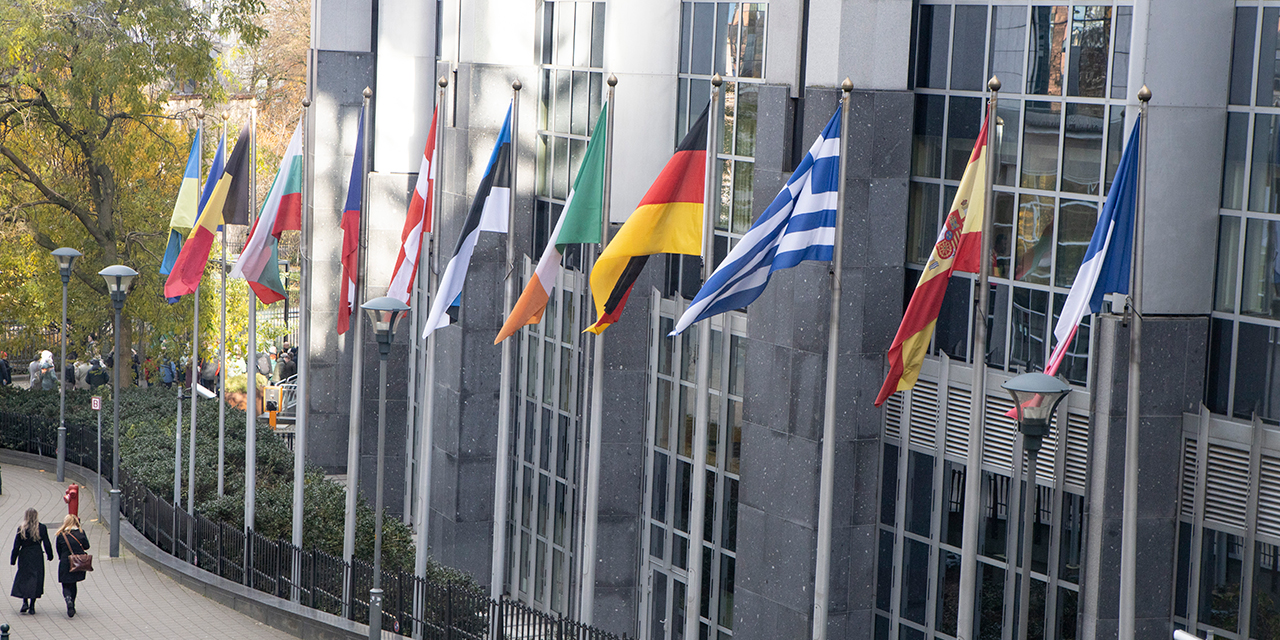
Most Americans pay little heed to the machinations of the European Parliament, the European Commission, or the various regulatory bodies of the European Union. They should. As part of its expansive EU Green Deal, Brussels bureaucrats have been working to put American companies that do business in Europe—or even those that merely do business with companies that do business in Europe—under the thumb of onerous environmental and human rights standards. This extraterritorial regulatory power grab would apply even when the European diktats directly conflict with American law.
The threat of overseas governments regulating American businesses is the “fifth horseman of the regulatory state,” to borrow a framing one of us (Copland) used in a 2018 City Journal article. In that article, subsequently expanded into a book, Copland described how regulation by administration, regulation by prosecution, regulation by litigation, and progressive anti-federalism combined to control huge swathes of economic activity largely untethered by national elections. To those four, we can now add: regulation from abroad.
Finally, a reason to check your email.
Sign up for our free newsletter today.
This fifth horseman poses dangers similar to those of progressive anti-federalism. If we should worry about local officials in, say, New York City or San Mateo County, California affecting national policy, then we should be at least as concerned about far-reaching regulatory efforts from foreign governments that purport to transform American corporate governance.
That’s precisely what the EU Green Deal purports to do, most substantially through its Corporate Sustainability Due Diligence Directive (CSDDD), which the European Commission promulgated in June 2022 and the European Parliament enacted last spring. As originally formulated, the CSDDD attached directly to any U.S. firms if their European market revenue exceeded €450 million (approximately $500 million)—but it also applied indirectly to smaller firms and those with a more limited footprint in Europe, because the directive’s expansive reach implicated large companies for the conduct of their trading partners up and down the supply chain. In fact, small American businesses probably stand to lose the most from this proposal, since it would likely force larger firms with European interests to exclude many of them from otherwise-lucrative and strategically important contracts and partnerships.
While environmental concerns are only part of the CSDDD, the directive’s goals are sweeping and purport to require companies to reduce carbon emissions by 55 percent by the end of this decade, and reach “net zero” emissions by 2050. Needless to say, Congress never voted on this aggressive plan, and it goes far beyond existing U.S. law.
The CSDDD’s labor-law portion would foist on companies with minimal European contacts labor norms enshrined by the European Union or United Nations but never ratified by the U.S. Senate or American state governments. Consider recent litigation in Alabama against Mercedes-Benz by the United Auto Workers. The union has attempted an end-run around Alabama’s constitutionally enshrined “right to work” laws by invoking the German Supply Chain Act—the very national-level legislation adopted to implement the CSDDD. If the directive goes into full force, such shenanigans will be only the beginning.
Beyond U.S. environmental law and state and federal labor law, the CSDDD would seek to redefine the norms of American corporate governance. The decree would require firms to conduct “due diligence” assessments of various human rights and environmental goals embedded in European law and institute action plans to address these concerns. The CSDDD would thus override America’s state-centered corporate law, which vests governance authority in boards of directors, whose fiduciary interests lie exclusively with equity shareholders, rather than with labor unions, other interested parties, or environmental or other social or policy goals.
The CSDDD could empower EU member states to bring enforcement actions—including pecuniary penalties—against an American firm that falls within any European company’s supply chain, irrespective of whether that firm has a European footprint. Cash-rich U.S.-parented companies may soon become the cash cows of indebted European governments. Like many American laws, the CSDDD also would put businesses at risk of sweeping civil liabilities—potentially supercharging the plaintiffs’ bar and various left-leaning nongovernmental organizations to shake down U.S. businesses in European national courts.
Fortunately, European leaders recently hit “pause” on the CSDDD’s implementation, as the EU parliament on April 3 voted to delay the directive’s rollout and suggested scaling back some of the original plan’s worst abuses. This “stop the clock” measure flowed in part from a new internal focus on European competitiveness, and doubtless as well from trepidation about the Trump administration’s response.
But the EU’s new April 3 plan still leaves much to be desired. Though it more carefully defines which “stakeholders” would be owed “corporate engagement” under the CSDDD, it still essentially overrides U.S. law on corporate fiduciary duties and authority. And while the new version of CSDDD removes civil liability from European courts, that may actually make matters worse for foreign businesses, as the most liability-friendly European nation-states’ court systems effectively overrode the others’ through outsize liability awards—precisely the sort of dynamic we see in America’s decentralized federal tort-law regime.
The United States has options to push back against Europe’s CSDDD overreach. On March 12, Tennessee senator Bill Hagerty introduced the Prevent Regulatory Overreach from Turning Essential Companies into Targets (PROTECT USA) Act of 2025, specifically designed to counter the CSDDD. The bill would prohibit American companies from complying with the CSDDD or similar foreign laws unless granted a waiver by the U.S. president, give the president sweeping authority to act in response to a foreign CSDDD enforcement action, and establish a private right of action enabling any affected American business to sue for damages in U.S. courts.
The PROTECT USA Act may not be the perfect option—particularly for congressmen worried about a president overly enamored of protective tariffs. But there’s clearly some potential for a response to the CSDDD on Capitol Hill. The chairmen of the committees overseeing financial services in both the Senate and House have expressed great concern about the threats these rules pose to American sovereignty and competitiveness.
Nor are U.S. options limited to those spelled out in the PROTECT USA Act. Indeed, without Congress, the executive branch could take a range of actions in response to the CSDDD. For example, under current American rules, European firms need not file under U.S. Generally Accepted Accounting Practices (GAAP) standards. That would be easy to change as a matter of regulatory rulemaking. Similarly, the federal Securities and Exchange Commission could revoke its European exemption to the 2020 Human Capital Management Rule. Federal regulators also could waive European exemptions to onerous American disclosure rules under the Sarbanes-Oxley Act and Holding Foreign Companies Accountable Act.
For years now, European growth has lagged America’s. But the solution to that problem can’t be to saddle American businesses with the same regulatory overreach that has held back EU economies. If the Europeans don’t recognize this themselves, then Americans should be prepared to push back.
Ultimately, rather than escalating trans-Atlantic retaliation, the more constructive approach would be to respect traditional norms that leave foreign businesses’ regulation to their local authorities, except with regard to firms’ direct local effects. We should retire the fifth horseman of the regulatory state. The original four are bad enough.
Photo by Siavosh Hosseini/NurPhoto via Getty Images
City Journal is a publication of the Manhattan Institute for Policy Research (MI), a leading free-market think tank. Are you interested in supporting the magazine? As a 501(c)(3) nonprofit, donations in support of MI and City Journal are fully tax-deductible as provided by law (EIN #13-2912529).
Source link
















